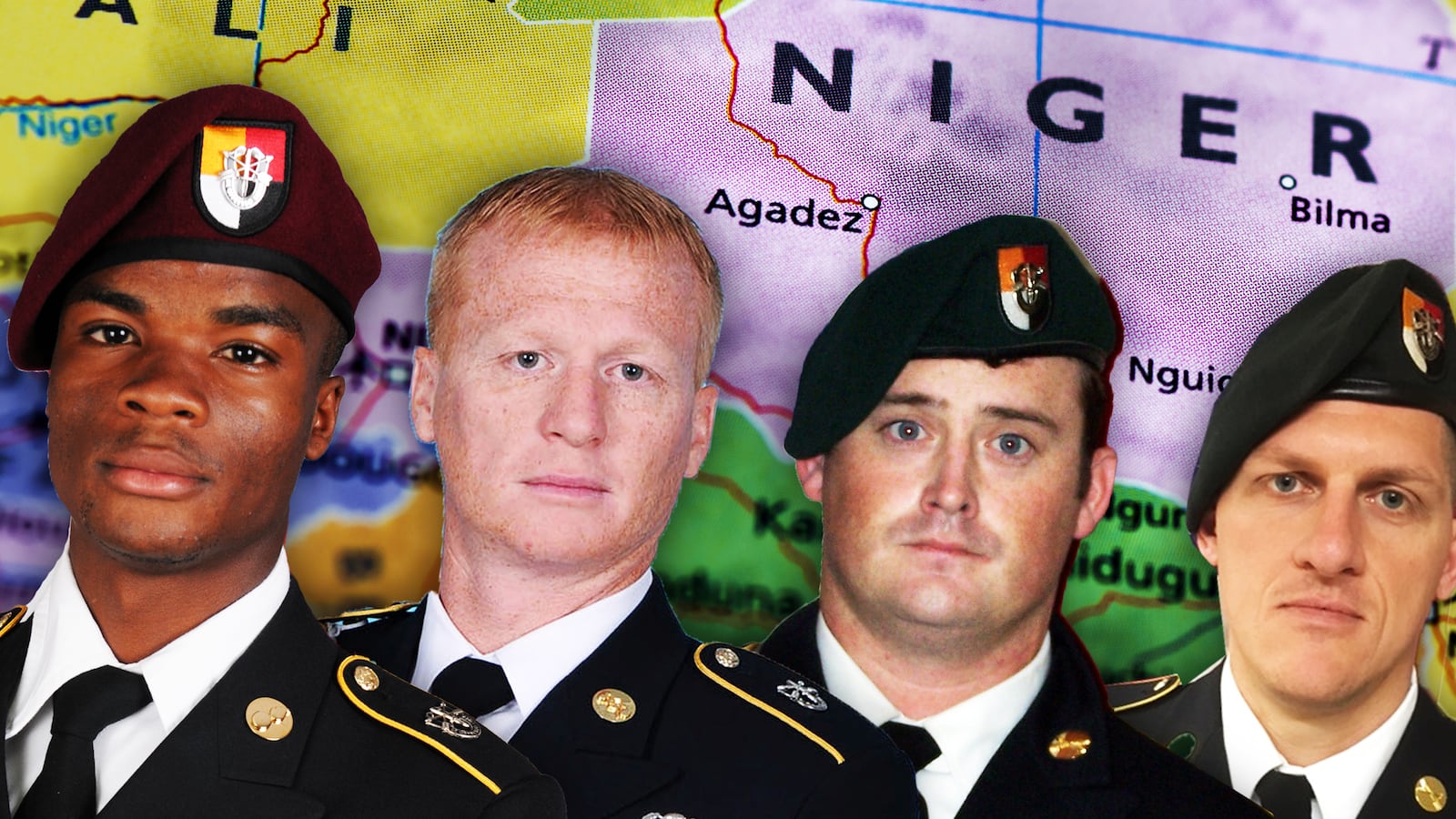The death of four U.S. Special Operations Forces troops in Niger has generated a raucous conversation about how presidents should comfort bereft Gold Star families.
But, quietly, it’s fueling a more difficult debate than whether a phone call or a letter suffices in the aftermath of tragedy; mainly, why were U.S. troops in the country in the first place, and does Congress need to exert more authority when it comes such deployments?
Many lawmakers assiduously duck these questions. But on the Sunday shows, several were forced to address them in the aftermath of four soldiers dying under still-mysterious circumstances near the small town of Tongo Tongo. In the process, two powerful Senators tacitly admitted that they hadn’t even known the extent of U.S. involvement in Niger in the first place.
Sen. Lindsey Graham (R-S.C.), one of the chamber’s most hawkish members, told host Chuck Todd on Meet the Press that he didn’t know until recently that a thousand U.S. troops are stationed in Niger.
Graham is on the powerful Senate Armed Services Committee, tasked with overseeing the Pentagon. And he made the admission when Todd pressed him on whether Congress needs to vote on an Authorization of Use of Military Force (AUMF) for that mission.
“The military determines who the threats are, they come up with the engagement policy and if we don’t like what the military does, we can defund the operation,” Graham said. “But I didn’t know there was a thousand troops in Niger.”
Graham added that as long as American military activity involves countering “radical Islamist fundamentalism and the spread of it,” Congress doesn’t need to give the Pentagon any special permission since, in his view, the AUMFs that passed in 2001 was sufficient. That AUMF, which sailed through Congress after the attacks on 9/11 has been used as legal justification for numerous campaigns beyond counteracting the Taliban in Afghanistan; most prominently in Syria to target ISIS and, now, as far-flung as Niger.
Sen. Chuck Schumer (D-N.Y.), the chamber’s most powerful Democrat, admitted later on the same show that he was just as ignorant as Graham about the number of U.S. troops in Niger. When Todd asked him if he knew previously about the thousand troops there, he said he didn’t.
“And what it means, Chuck [Todd], for the war authorization, is I agree with Senator [Rand] Paul (R-KY) that we ought to look at this carefully,” Schumer continued. “We are in a brave new world, you know, there are no set battle plans.”
Paul, who occupies the other end of the foreign policy spectrum from Graham, has long argued that Congress needs to have a vote on whether or not to reauthorize American military involvement around the globe related to the War on Terror.
“It should be a simple vote,” he said in September. “It is like pulling teeth.”
But the Kentucky Republican remains in the minority. Though a bipartisan group of Senators have introduced an updated AUMF for counter-terror operations, congressional leaders have declined to act on it. The Obama administration had called for an updated AUMF as well. And, recently, Senate Foreign Relations Committee Chairman Bob Corker (R-Tenn.) called for a “sober national conversation about Congress’ constitutional role in authorizing the use of military force.”
But the Trump administration has not asked for new war powers, arguing that the current ones are sufficient.
On Oct. 30, Defense Sec. Jim Mattis and Secretary of State Rex Tillerson will testify before the Senate Foreign Relations Committee on the issue. Sen. Tim Kaine (D-VA), one of the authors of the bipartisan AUMF, has specifically invoked the four deaths in Niger in arguing for a vote.
“The many questions surrounding the death of American service members in Niger show the urgent need to have a public discussion about the current extent of our military operations around the world,” Kaine said. “For sixteen years, Congress has remained largely silent on this issue, allowing administrations to go to war anywhere, anytime.”
If members of Congress have to vote on such a matter, many expect to face political blowback. And the consequences aren’t hypothetical; there’s wide agreement that Hillary Clinton’s 2002 vote to authorize the Iraq War played a key role in her defeat in the 2008 Democrat presidential primary.






